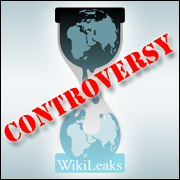
Social media sites like Facebook and Twitter have made the world smaller, allowing people located on different continents to connect and communicate as if they were next-door neighbors. At times, however, the conversations taking place on these new technology platforms can offend some of their users’ old-world sensibilities, creating consequences that not even the visionaries who created these sites ever imagined.
The latest social media uproar surfaced Wednesday, when protesters took to the streets in Pakistan decrying a contest soliciting caricatures of the prophet Muhammad initiated by a Facebook user. The demonstrations caused Pakistan’s Lahore High Court to order the Pakistan Telecommunication Authority to block access to Facebook from Internet users throughout the country. On Thursday, the PTA expanded the ban to include YouTube.
This is just another in a series of incidents in which social media content has inspired social unrest, and it raises the bigger question of what, if anything, social media sites should do to avoid such incidents.
Facebook Considering Block
Media outlets across the world faced a similar dilemma a couple of years ago when a Danish newspaper cartoonist drew a caricature of Muhammad in violation of Islam’s ban of any depictions of its most revered prophet. But sites like Facebook are in a particularly difficult position when it comes to such issues, because their content is almost entirely user-generated, and the company typically doesn’t realize objectionable content has been posted until it sparks protests.
In the case of the draw Mohammad contest, Facebook was blindsided by both the launch of the competition and the Pakistani government’s decision to block Facebook.
“We are disappointed with the Pakistani Court’s decision to block Facebook without warning, and we suspect our users there feel the same way,” Elizabeth Linder, a member of Facebook’s international communications and public policy team, told TechNewsWorld. “We are analyzing the situation and legal considerations, and will take appropriate action, which may include making this content inaccessible to users in Pakistan.”
‘South Park’ Trigger
The offending contest was launched in April by Molly Norris, a Seattle-based cartoonist, in reaction to the decision by the Comedy Central network to edit a portion of its “South Park” television program that was to have depicted the prophet Muhammad in a bear costume.
By Wednesday, the contest page reportedly had attracted more than 40,000 people who supported the idea, while a page opposing the contest had drawn more than 50,000 members.
The issue exploded this week, because in launching her page Norris set Thursday May 20 as the deadline for submitting the caricatures — declaring it “Everybody Draw Mohammed Day.”
Just Click Away
Responding to public reactions to content that some groups deem offensive is still a new issue for social media sites, which after all are still relatively young enterprises, said Muhammad Saleem, a Chicago-based social media consultant.
However, the sites will have to start developing policies to deal with this issue, he said, because it is coming up with increasing frequency.
“Facebook has been somewhat inconsistent in the way it handles these issues,” Muhammed told TechNewsWorld. “For instance, they have let pages that deny the Holocaust stay up, but took down a page supporting women’s rights to breastfeed.”
Despite their brief speckled history in handling controversial content, Muhammed believes social media sites, including Facebook, ultimately will come down on the side of free speech.
“I don’t think they’re going to bow down to pressure from protest groups,” he said. “It’s a freedom of speech issue, and they’re not going to shutter their content. Also, the governments in countries like Pakistan need to realize that it’s not a good idea to block access to a site for their entire population because they don’t like one piece of content.”
For anyone offended by content on a social media site, Muhammed offers this advice: “Just ignore those pages. It’s not like they’re feeding that content to you. You don’t have to see it if you don’t want to.”




















































